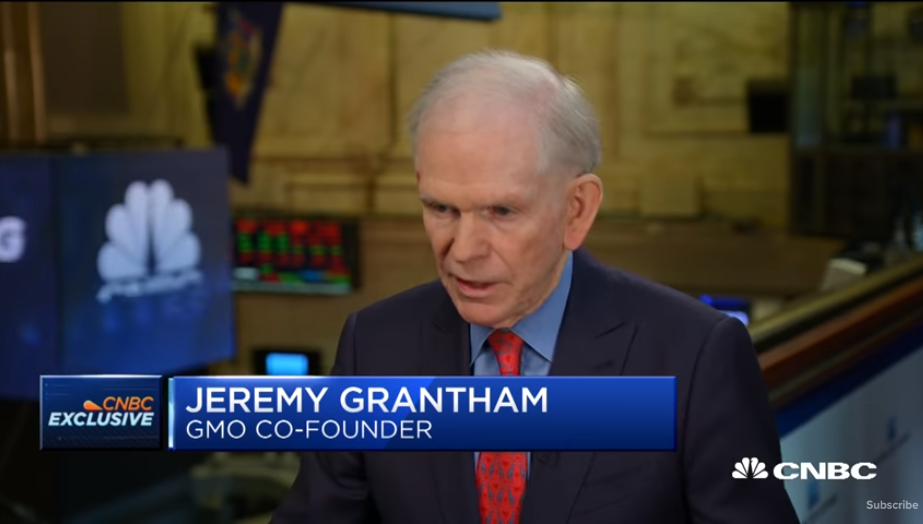Jeremy Grantham, who is credited for predicting both the 2000 and 2008 stock market crashes, said recently that investors should get used to subpar returns in the market over the next 20 years after a 100 years of big gains.
Grantham also there there won’t be a massive crash when the record bull market, which has been running for more than a decade, finally comes to an end.
“This will be limping along, three steps down, two steps back. It’s not a typical experience,” Grantham told CNBC‘s Wilfred Frost last month just ahead of the bull market’s 10-year anniversary. “I was really hoping there would be a magnificent bubble ending to this, as there had been to the three great recent experiences (tech bubble, housing crisis and Japan).”
“They were all classic. They ended with euphoria and a rapidly accelerating stock market. They’re easy — you know they’ll be followed by an abject decline. This one, I was hoping that would happen. It doesn’t look like it will and, therefore, you’re going to have a decline of a different nature.”
Stocks the past decade have received a shot in the arm from the Fed’s benchmark interest rate of zero and quantitative easing, or pumping new cash into the economy in order to stimulate activity.
Since 2015, the Fed has slowly been raising its rate, which is currently 2.5%. The Fed has said it will be “patient” moving forward with rate hikes, and we likely won’t have any more in 2019 after the hikes and QT caused panic the final quarter of 2018, leading to a massive sell-off and the worst December for Wall Street since 1931.
Even though the Fed said it will pause its rate hikes, rates still remain far below historic levels, which is a big problem, Grantham said.
“You can’t get blood out of a stone,” he said. “At these prices, even the bears and the bulls and everyone in between at GMO agree that over a long horizon, like 20 years, the U.S. market will be delivering 2 or 3 percent real (returns). In the last 100 years, we’re used to delivering perhaps 6 percent.
“This is not incredibly painful, but it’s going to break a lot of hearts when we’re right. Now, if you stay away from the U.S. — which I absolutely would — in emerging markets I think investors can do better than 6 percent, or 8 percent if you’re tilted toward value.”
Grantham also said emerging markets are the future, and that he is particularly bullish on China.
“They have the people and the faster growth and, increasingly, they direct their efforts in a very intelligent way,” he said. “China in particular is cranking out their percentage of people taking engineering and hard science. So they’re now in total a much bigger country but in total massively out-producing the U.S. in the number of engineers and scientists. And as that goes on, it makes it difficult for them not to take the lead in — in one area after another in science.”




